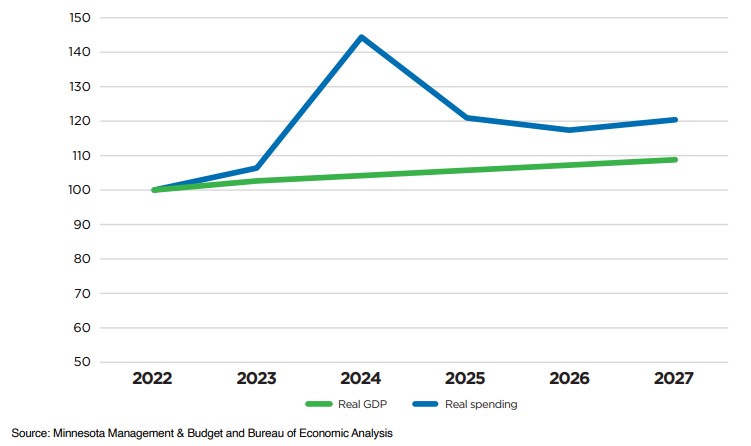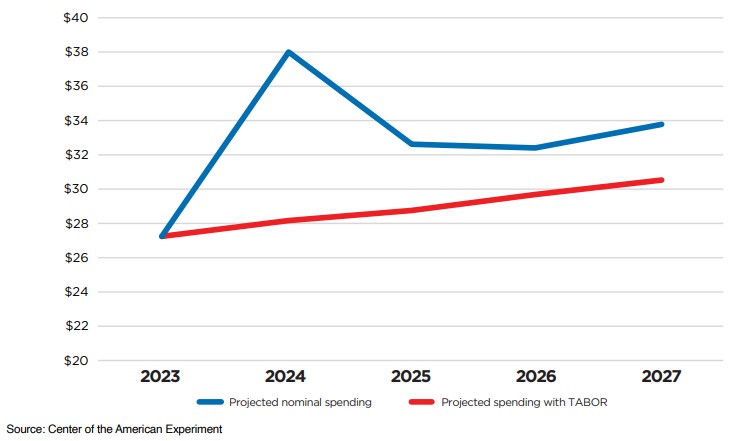Minnesota should enact a Taxpayer’s Bill of Rights
Background
In the 2023 legislative session, Minnesota’s state government passed $10 billion of hikes to taxes and fees. In November, Minnesota Management & Budget estimated that, in 2027, General Fund spending would be 20 percent higher in inflation adjusted terms in 2027 than it was in 2022. Over the same period, as Figure 1 shows, the state’s economy is forecast to grow by 8.9 percent in inflation adjusted terms.
Figure 1: Growth of Minnesota’s GDP and General Fund spending, 2022=100

Minnesota’s taxpayers face an increasing share of their income being taken by the government. This is a real concern for the state. Research shows that higher taxes are associated with lower rates of economic growth. As we argue in our new Policy Briefing ‘Protect Minnesota’s Taxpayers,’ to rein in its spendthrift politicians, Minnesota should adopt a Taxpayer’s Bill of Rights (TABOR).
Taxpayer’s Bill of Rights
A TABOR can take many forms, but essentially it limits the growth rate of state government spending to the growth rate of something else, such as state Personal Income. Another option is to follow Colorado’s model and limit the increase in state government spending to the growth rate of inflation plus the growth rate of the population. This would hold state government spending constant in inflation adjusted, per capita terms. To see how this would work in Minnesota, Figure 2 shows projected state General Fund spending from the November 2023 Budget and Economic Forecast and what spending would be if we applied a growth rate of inflation + population (taken from the November 2023 forecast and the state Demographic Center respectively) to the total for 2023. It shows that in 2027 state government spending would be $3.3 billion, or 9.8 percent, lower than it is currently projected to be — or $565 per Minnesota resident.
Figure 2: State General Fund spending, projected and under TABOR, ($ billions)

Again, the precise form is open to discussion. The measure could include a provision for legislative override with a supermajority vote — such as two thirds — in favor.
Conclusion
Minnesotans cannot afford to hand over an ever-expanding share of their income to the state government. It slows economic growth and unfairly burdens taxpayers in this high-tax state. Even applying a population + inflation formula to current levels of spending would still leave it at near record highs in inflation adjusted, per capita terms. Minnesota should enact a Taxpayer’s Bill of Rights.